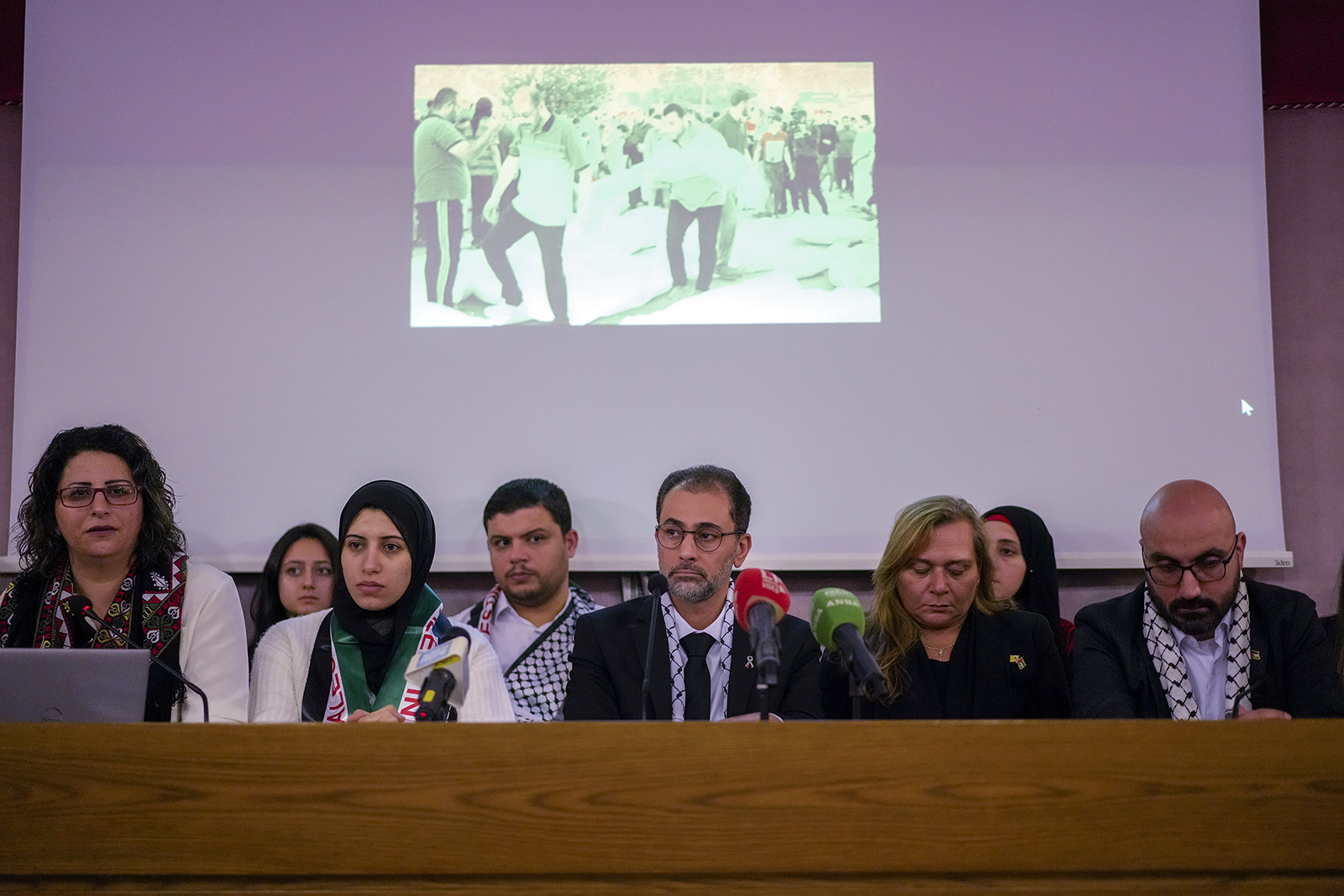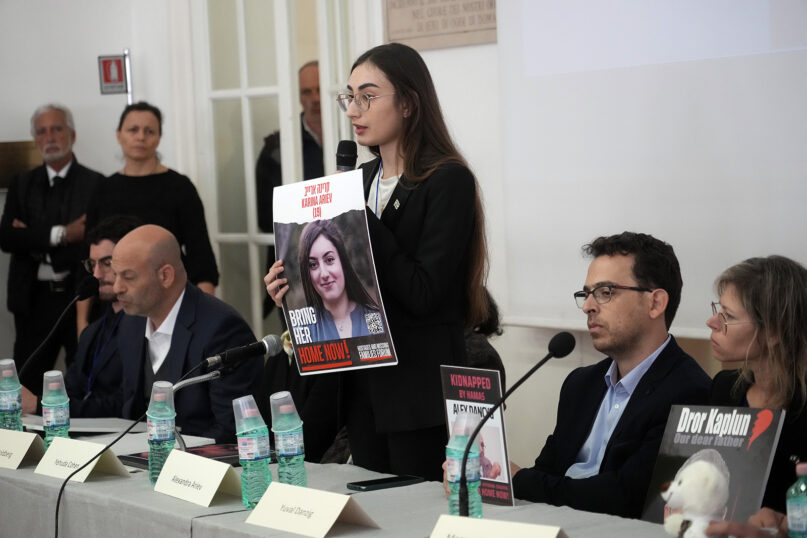VATICAN CITY (RNS) — After meeting separately with Pope Francis on Wednesday (Nov. 22), Israeli and Palestinian delegations vying for the pontiff’s support in the crisis in the Mideast made conflicting claims about Francis’ choice of words to describe the conflict, leaving Vatican officials straining to clear up the confusion.
Twelve relatives of Israeli hostages taken by Hamas militants in the attack on Oct. 7 met with Francis at the Vatican in the morning on Wednesday and emerged saying they hoped the pope would intercede for the liberation of the hostages, during a news conference after the meeting.
According to one participant, Yair Rotem, Francis called Hamas’ attack a terrorist act and did not aim any criticism at Israel. But another relative of an Israeli hostage voiced “disappointment” that the pope did not explicitly call out Hamas as a terrorist organization.
Since the war broke out, the pope has tried to promote peace through diplomacy, characteristically taking care not to favor either side. During his weekly general audience in St. Peter’s Square earlier in the day Wednesday, Francis spoke about “how both sides suffer.” But he also said that what is happening in the Holy Land “is not war. This is terrorism.”
After the meeting with the Israelis, Vatican spokesperson Matteo Bruni told Religion News Service that in addressing the delegation, the pope “used the same language he used during the audience.”
When asked at the news conference about Francis’ comments in the meeting, Nadav Kipnis, whose parents were kidnapped by Hamas at the Be’er kibbutz on Oct. 7, said that he didn’t believe the pope was accusing Israel of terrorism, adding that “stating that both sides did acts of terrorism is an unfair comparison.”
On Wednesday afternoon, 10 Palestinian delegates, many with relatives living in Gaza, told reporters at their own news conference that Francis used the word “genocide” to describe Israel’s response to the Hamas attacks.

Family members of Palestinians living in Gaza attend a news conference at the Vatican after meeting with Pope Francis, Nov. 22, 2023. Francis, before his Wednesday general audience, met with family members of Palestinians living in Gaza and of the over 220 Israelis abducted by Hamas on Oct. 7, 2023, and believed to be held hostage in Gaza. (AP Photo/Andrew Medichini)
“What surprised me is that he made statements,” said Shireen Awwad Hilal, a Christian from Bethlehem. “And to us Palestinians, statements are so important because the world needs to know that what is happening in Israel is not a conflict,” ending by saying that Francis “stated clearly that it is genocide.”
Before the Palestinians’ news conference was over, Bruni, the Vatican spokesperson, had contradicted the statements of the Palestinian delegation in an message, saying, “I don’t recall him using this word. He used the same language he used during the General audience and words that represent the terrible situation unfolding in Gaza.”
The group of Palestinians reacted with shock to Bruni’s note but stood by their statement. “We were all there, we heard it,” Hilal said. “We are not here to try and twist information. We are trying to convey a story, a message, about something that has happened to our families.”
The Palestinian delegation said that Francis voiced sympathy for the hostages, while stating that “terror cannot justify terror.” When discussing the reported deaths of more 5,000 Palestinian children since the beginning of the violence, the delegates claimed that the pope said, “I see the genocide.”
The group also invited Francis to visit Gaza, stressing their belief that he “is capable of stopping the war.” They said the pope indicated willingness to visit the country but said he needs to discuss such a trip with Vatican diplomats. Francis visited the Holy Land in 2014 and prayed for peace in the region while there.
The Vatican opened official diplomatic channels with Palestinian representatives in June 2015 and has been a consistent proponent of a two-state solution. Since the outbreak of open hostilities, Francis has relied on personal diplomacy, based on face-to-face meetings and practical and humanitarian gestures.
The pope’s refusal to firmly take sides in global conflicts has caused some backlash in the past. When Russia invaded Ukraine in February 2022, the pope attempted to avoid calling out Russia and its leader as the aggressor in an apparent effort to bring both sides to the negotiating table. Today, as Palestinians and Israelis urge the pope to take a stand for one side or the other, Francis walks the tightrope of his unpartisan diplomacy.
“The Palestinian people, the people of Israel, have the right to peace. These two fraternal peoples have the right to live in peace. Let us pray for peace in the Holy Land. Let us pray that the difficulties resolve themselves in dialogue and negotiation and not with a mountain of dead on each side,” Francis said in his prayer intention for the month of November.





